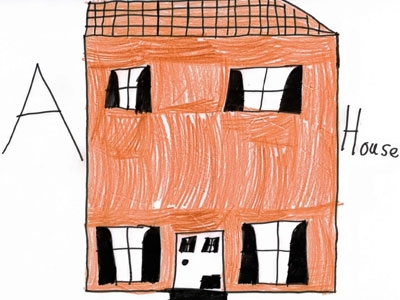
A culture of “anti-residential feeling” must be challenged if children’s homes are to survive, a damning new report has warned.
The report, published by the Independent Children’s Homes Association (ICHA), claimed the residential child care sector is far too often attacked by others, especially those with little understanding of the work it carries out.
It argued that national and local government need to challenge sensational and inaccurate media reporting on the sector, in order to ensure that the most vulnerable children receive recognition and investment.
The worrying report follows a turbulent period for the residential child care sector, which faced renewed attacks from the media and government following reports that young people living in privately-run homes in Rochdale had been sexually exploited.
Jonathan Stanley, chief executive of the ICHA, expressed genuine concern over the future of residential children’s homes.
“The sector meets extraordinary needs with extraordinary responses, yet is under-estimated, under-valued and under-funded.
“Though providers have embraced reform, the report shows our nation’s homes do not have the necessary firm foundation for their future,” Stanley said.
The report, entitled ‘Home Truths’, surveyed all 500 members of the ICHA. It stressed the need for a professional body for residential child care, as well as a professional qualification and registration of staff.
It also called for more collaborative working and an end to “in-housism” among local authorities – where a council’s in house resources are used first, often leading to increased moves for a young person.
Stanley is now calling on the government to set out a clear strategic direction for the future of children’s homes and invest in much-needed training, research and development.
“Alarm bells must start ringing,” he said. “It has to be a major concern that this vital sector is experiencing demoralisation and fears irrevocable damage through its further diminution and contraction, even collapse, as providers disappear.”
Nushra Mansuri, professional officer at the British Association of Social Workers, said children’s homes have carried the “burden” of being seen as the last resort. “This needs to be challenged and we need to look at the merits of residential child care,” she said.
She added: “It is very easy to write off children’s homes and say they are a bad thing, but that is not the full story. There is some very good work that takes place in those settings and I have known young people who have really valued their home.”
- If you work in social care and have a view on the future of children’s homes, we’d love to hear from you. You can comment on this article, email the team or send us a tweet.





 ‘Dear Sajid Javid: please end the inappropriate detention of autistic people and those with learning disabilities’
‘Dear Sajid Javid: please end the inappropriate detention of autistic people and those with learning disabilities’ Ofsted calls for power to scrutinise children’s home groups
Ofsted calls for power to scrutinise children’s home groups Seven in eight commissioners paying below ‘minimum rate for home care’
Seven in eight commissioners paying below ‘minimum rate for home care’
 Facebook
Facebook X
X LinkedIn
LinkedIn Instagram
Instagram
As the cohort of looked after children presenting with more and more “complex” needs increases ( their “complexity” often compounded by multiple failed but cheaper in the short term foster placements) the role of specialist residential care becomes crucially important.
Good needs assessment should go hand in hand with a responsive and dynamic supply of specialist fostering and residential provision.
No longer should vulnerable children be exposed to services that cannot meet their needs just because its thought of as cheaper or politically expedient.
On behalf of all looked after children we must all strive for the right placement at the right time be it foster or residential care
Only then will good residential care be able to fulfil its potential in addressing “complex” needs rather than mopping up the expediency and damage created narrow thinking.
The excellent work of rescuing young people happening in many of our children’s homes is being swamped by ill informed dogma. Adults working in the sector are battered by sensationalised and isolated stories, promulgated very often by those who are blind to the positive and critical work being done in the vast majority of places. Instead of examining in full the system that creates the problems the government constantly plays a blame game with those who are doing the rescuing of these very damaged and complex young people. Residential Care is a positive option for some young people not a last resort where the cheapest placement becomes the key criteria.
I think a registration scheme for residential children’s workers and child support workers would be a good thing.
This would enable us to keep track of any complaints, problems or issues relating to a registered staff member and we could make checking the register part of the recruitment process- just like we do with social workers.
I have been providing independent residential care for young people for 25 years. Most of these young people have arrived at our door as a last resort because their needs have not been met by other sectors of the care system ,resulting in -all too often -multiple moves and rejections. We are not responsible for those failings.
For some young people ,residential care can and should be a first resort. They can then be supported by a team of nurturing staff who with the help of other members in their team and organisation, provide an environment where they can start to address historical issues and prepare to move forward positively.
I am proud to be part of residential care. Give us the recognition we deserve and invest in a sector which deals with some of our most damaged and vulnerable young people.
The report restates strongly the trend we have seen in recent years – purchasing by local authorities based on price reducing the choice and quality of what they are being offered. This leads to poor value for money and doesn’t meet the needs of the vulnerable. Local authorities should be commissioning practice, demanding to see the theoretical underpinning of the models being used in different settings/ with different risks, asking tough questions of providers to be able to see how their leadership and management structures are linked to sustaining practice and supporting staff. This would drive up quality and reduce the “dumbing down” and homogenisation of residential care. Too many board rooms lack practitioners and commissioners have failed to hold them to account. Residential care is a specialist, relationship based intervention and should be treated as such.